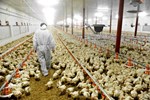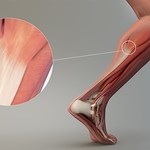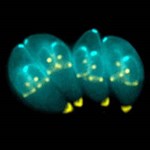Search - Research
161 - 170 of 764 results
-
World Tortoise and Turtle Day: Research from the Royal Veterinary College reveals risk factors to tortoises during brumation in UK
Marking World Tortoise and Turtle Day, new research from the Royal Veterinary College (RVC) has revealed the factors contributing to sickness and mortality in captive tortoises in the United Kingdom during and post brumation. Tortoise brumation …Marking World Tortoise and Turtle Day, new research from the Royal Veterinary College (RVC) has …
-
RVC awarded international grant to further research into equitable and sustainable livestock and food systems
The Royal Veterinary College (RVC) has been awarded more than USD $339,160 from the Tiny Beam’s Kindling Initiative grant to continue Critical Research on Industrial Livestock Systems (CRILS) Network. CRILS aims to support and advocate for just and …The Royal Veterinary College (RVC) has been awarded more than USD $339,160 from the Tiny Beam’s …
-
RVC wins research grant to investigate how viral diseases spread in salmon farms
RVC wins research grant to investigate how viral diseases spread in salmon farmsThe Royal Veterinary College (RVC) has been awarded a £500,000 BBSRC (Biotechnology and Biological …
-
RVC research finds memory-boosting effects of a dietary supplement for cognitively-impaired dogs with epilepsy
Changing the fat profile of the diet of dogs with hard-to-treat epilepsy can not only improve their seizure control, but also their cognitive abilitiesNew research from the Royal Veterinary College (RVC), funded by The American Kennel Club Canine …
-
New research by the RVC could hold the key to treatments for tendon disease and other musculoskeletal disorders
Examining protein turnover rates in the tendons of rats, has found that tendons are a dynamic tissue with varying turnover rates of proteinsA new study, by the Royal Veterinary College (RVC), which examined protein turnover rates in the …
-
New research explores diagnoses associated with ionised hypercalcaemia in cats and the prevalence of concurrent urolithiasis
A new study from the Royal Veterinary College explores the diagnoses associated with ionised hypercalcaemia in cats and the prevalence of concurrent urolithiasis. High ionised calcium concentrations can occur for numerous reasons. Previous, often … -
New RVC research highlights the considerable behavioural and psychiatric effects of a mind-altering parasite
A Royal Veterinary College (RVC) study, published in Trends in Parasitology, suggests that the human infection burden of Toxoplasma gondii (T. gondii), a globally distributed parasitic infection, have been greatly underestimated.A Royal Veterinary College (RVC) study, published in Trends in Parasitology, suggests that the …
-
£1.2M Wellcome Trust Fellowship funds research into fundamental challenges of using muscles to power locomotion with legs
Have you ever wondered why you can’t walk and run as fast or efficiently as you can cycle? Or why small children and birds don’t run like adults or ostriches? A new conceptual framework being developed at The Royal Veterinary College is approaching …Have you ever wondered why you can’t walk and run as fast or efficiently as you can cycle? Or why …
-
RVC research finds potential in ground-breaking new dietary treatment for canine epilepsy
Research shows that small changes to the diets of dogs with hard-to-treat epilepsy has the potential to reduce the number of seizures and improve the quality of life for affected dogs and their owners.Research conducted by the Royal Veterinary College (RVC), funded by The American Kennel Club Canine …
-
New research reveals biggest risk factors for puppies developing separation-related behaviours
New research conducted by the Royal Veterinary College (RVC), in collaboration with Dogs Trust, has identified experiences in a puppy’s early life that put them at the greatest risk of developing separation-related behaviours (SRBs) when left home …New research conducted by the Royal Veterinary College (RVC), in collaboration with Dogs Trust, has …









